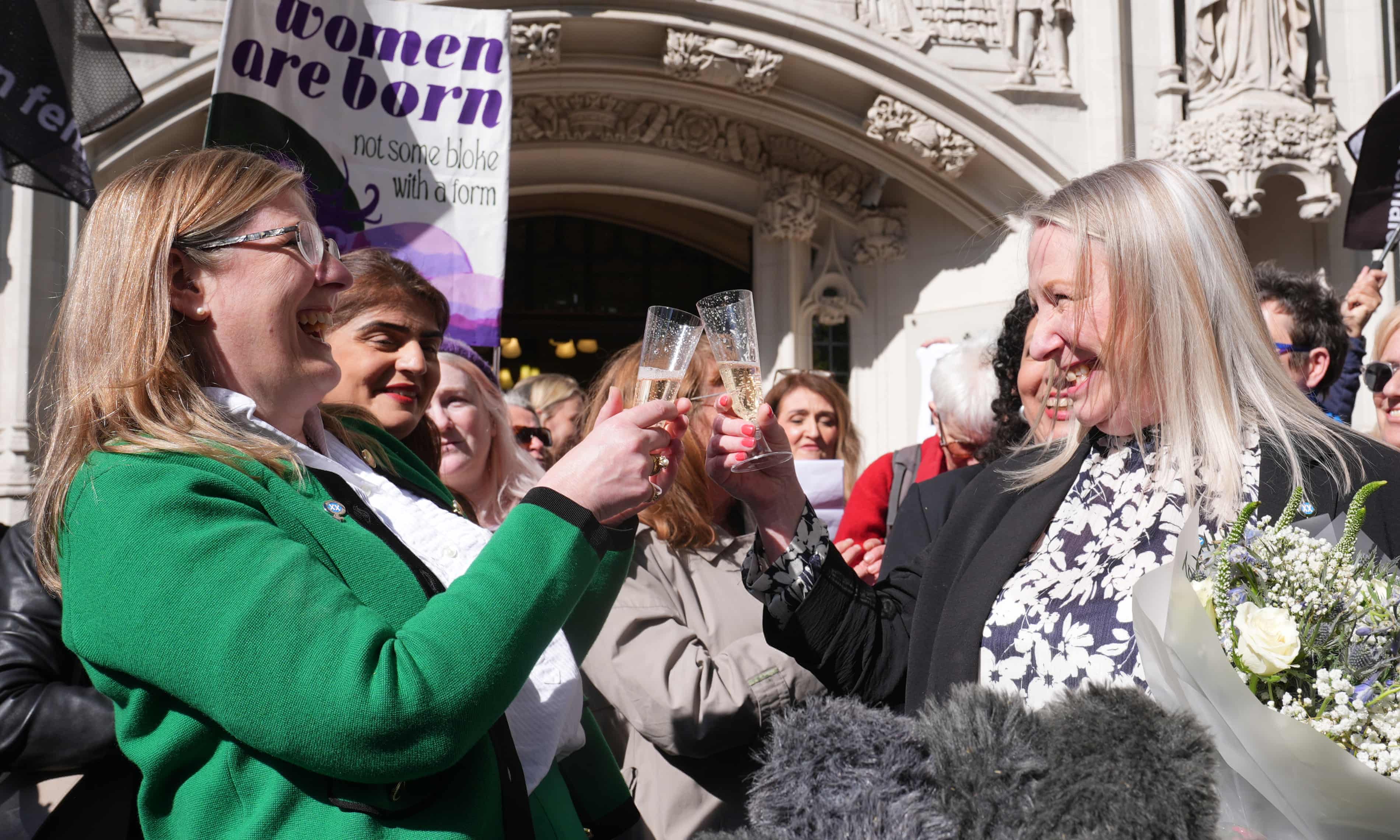 |
| Susan Smith (left) and Marion Calder, co-directors of For Women Scotland, celebrate following the Supreme Court ruling. Photo credit: Lucy North/PA. |
The UK Supreme Court’s Ruling on Gender: A Landmark in Equality Law
In a decision that's sending ripples across the UK and beyond, the UK Supreme Court has ruled that under the Equality Act 2010, the term “woman” refers specifically to biological sex. This landmark verdict clarifies a long-debated legal issue: whether transgender women—those who have transitioned and even obtained Gender Recognition Certificates—are included in the legal definition of “woman” under UK equality law.
Background: For Women Scotland v. Scottish Ministers
The ruling stems from a legal challenge brought by advocacy group For Women Scotland. The group opposed a Scottish government policy that expanded the definition of “woman” in public board appointments to include transgender women. They argued this contradicted the original intention of the Equality Act 2010, which they believe was based on biological sex, not gender identity.
After years of legal back-and-forth, the Supreme Court sided with For Women Scotland, stating that a broader interpretation was “legally incorrect.” It clarified that while transgender people remain protected under the characteristic of “gender reassignment”, those protections do not change the sex-based definition of “woman” under the Act.
What Does This Mean Going Forward?
The implications of the court's decision are significant. Institutions, charities, public services, and employers must now reassess policies where sex-based rights are critical—such as:
- Single-sex spaces (e.g., shelters, hospital wards, and prisons)
- Sports categories
- Employment protections
- Public board representation
Some fear this could restrict transgender individuals' access to certain spaces. Others argue it strengthens clarity around women's rights and legal protections originally intended for biological females.
Mixed Reactions Across the UK
The decision has been met with both support and criticism. Women’s rights advocates call it a victory for clarity and fairness, while LGBTQ+ rights groups view it as a step backward in transgender recognition and equality.
Stonewall, a leading LGBTQ+ charity, expressed disappointment, warning the decision may fuel exclusion and misunderstanding of transgender people. Meanwhile, supporters of the ruling say it reaffirms the need for women-only services and highlights that biological sex still holds relevance in policy-making.
Conclusion: Redefining Equality or Reinforcing It?
This ruling opens a fresh chapter in the ongoing conversation about gender, identity, and the law. As societies across the world grapple with these complex issues, the UK Supreme Court's verdict may influence future legal interpretations—not just in the UK, but in other jurisdictions watching closely.
What do you think—should legal definitions reflect biology, identity, or both? Join the conversation.


Post a Comment
0Comments